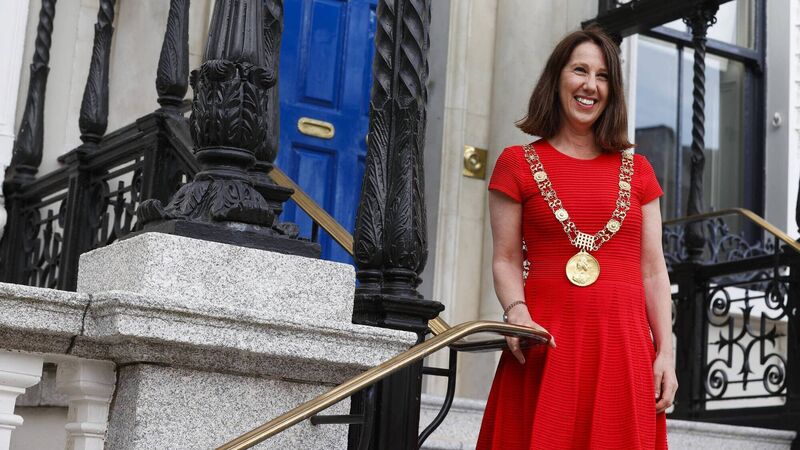Clodagh Finn: Deleted tweet puts the invisibility of women back in the picture

The Lord Mayor of Dublin, Cllr Alison Gilliland, said system is skewed against women. Picture: Conor McCabe Photography.
All the talk has been of deleted texts, but it was a deleted tweet – highlighted by Dublin Lord Mayor Cllr Alison Gilliland on Sunday – that caught my eye because it tells the sadly familiar story of a deeply ingrained lack of awareness of women in Irish society.
On August 26, the Provost of Trinity College, Professor Linda Doyle, the first woman to hold the position in the university’s 429-year history, welcomed French President Emmanuel Macron on campus. The Lord Mayor of Dublin, Cllr Alison Gilliland, the 353rd Lord Mayor but only the 10th woman to hold that office, was there too, along with Taoiseach Micheál Martin and Higher Education Minister Simon Harris.












